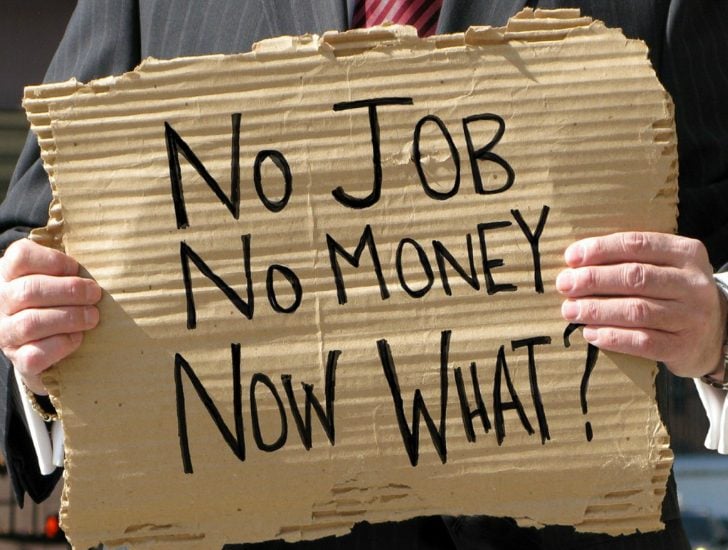KJIPUKTUK (Halifax) – Having a stressful job, a mind numbing job, or maybe one that doesn’t make you feel appreciated, can affect your health. The same is true for being unemployed.
You often don’t get sick in a vacuum. As we explored in part 1 of this series, the social determinants of health are the living conditions people experience that have an impact on whether they stay healthy or become sick.
For part two of my series on the social determinants of health, I’ll focus on two determinants: unemployment and job security, and employment and working conditions.
When reading labour force statistics, it can be confusing. There’s the unemployment rate, the employment rate, and the participation rate. This article will not look at those numbers, but rather what those numbers mean in terms of our health.
Let’s start with talking about how unemployment impacts our health.
Unemployment is associated with various physical and mental health problems including depression, anxiety, psychological stress, unhealthy coping behaviours (excessive drinking, smoking, etc.), and increased suicide rates.
Also, when people lose good jobs with benefits such as prescription drug coverage and dental plans, it can be a struggle to afford those types of services.
Beyond providing income, employment also provides a sense of identity and structure in our daily lives. Losing a job can be stressful. It can lower one’s self-esteem, disrupt daily routines, and increase the likelihood of social exclusion.
Job insecurity also affects health. Insecure or precarious employment is defined as seasonal, temporary or contract work, or any kind of job that may not be stable from day to day.
Insecure employment often consists of intense work with irregular working hours. Intense working conditions can impact quality of life, and are associated with higher rates of stress, injuries, and back, neck and shoulder pain, as well as headaches, sore muscles, fatigue, and nausea. Longer, more irregular hours raise the risk of sleep deprivation, high blood pressure, heart disease, anxiety, and other health issues.
Not all jobs are good for our health. Those who work in high-stress professions are more likely to have higher risks of high blood pressure, heart disease, depression, and anxiety.
In addition, there are often imbalances between demands (time pressures, interruptions, working overtime) and rewards (salary, respect from superiors). If workers feel they’re not being appropriately rewarded for their efforts at work, they are more likely to develop physical and mental illnesses. Health problems are also common among workers who have high demands made upon them, but little control over how to meet those demands.
In the current provincial election campaign, there has certainly been plenty of discussion about job creation and growing our workforce. However, there has been no discussion of how unemployment, job insecurity and working conditions affect our health.
Governments have a role in this discussion, but so does the private sector. Employment policies that preserve and create meaningful jobs would be an excellent starting point. Also helpful would be enhanced government support for access to training and employment opportunities for the long-term unemployed.
There must be a new vision of what exactly is meant by healthy and productive work. Workers, employers, government and researchers must come together and think differently about work and its effects on our health.
You may not have thought about how much having a good job affects your health. Moving the mark on the social determinants of health to improve the health of Nova Scotians won’t be easy or simple. But what can you do? You can learn more about the social determinants of health and discuss them with your local candidates.
Alex Kronstein is an Autistic adult and host of the podcast The NeurodiveCast. He is passionate about disability rights, social justice issues, and filmmaking. Follow Alex on Twitter.
If you can, please support the Nova Scotia Advocate so that it can continue to cover issues such as poverty, racism, exclusion, workers’ rights and the environment in Nova Scotia. A pay wall is not an option, since it would exclude many readers who don’t have any disposable income at all. We rely entirely on one-time donations and a small group of kindhearted monthly sustainers.





This is an excellent article, and brings up some important points about how job/income insecurity affects health – and has long range impacts too. One point though, I have heard quite a lot during this campaign about the effect that the way the current government has treated teachers, forcing a contract on them and undermining collective bargaining rights. This is huge, because as Alex says,”If workers feel they’re not being appropriately rewarded for their efforts at work, they are more likely to develop physical and mental illnesses. Health problems are also common among workers who have high demands made upon them, but little control over how to meet those demands.” I think this describes what has happened to teachers, but luckily they have a union to stand up for their rights. Many workers don’t have a union to turn to….this illustrates the importance of protecting unions, and expanding them so that more people, especially in precarious work situations, have that opportunity.